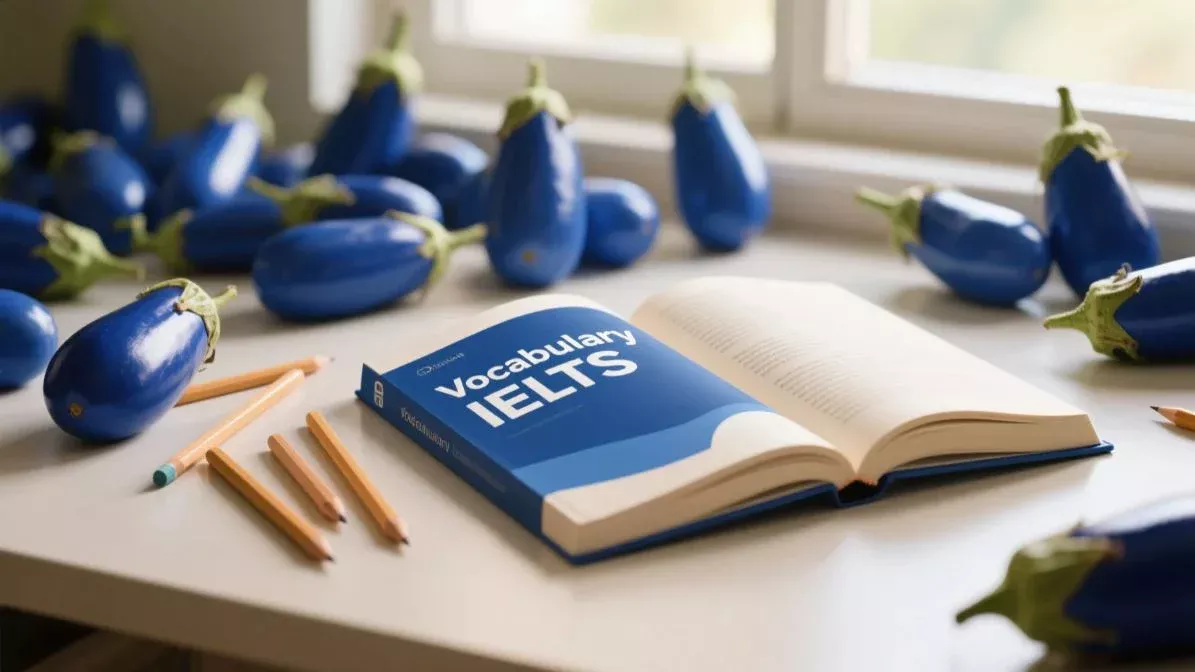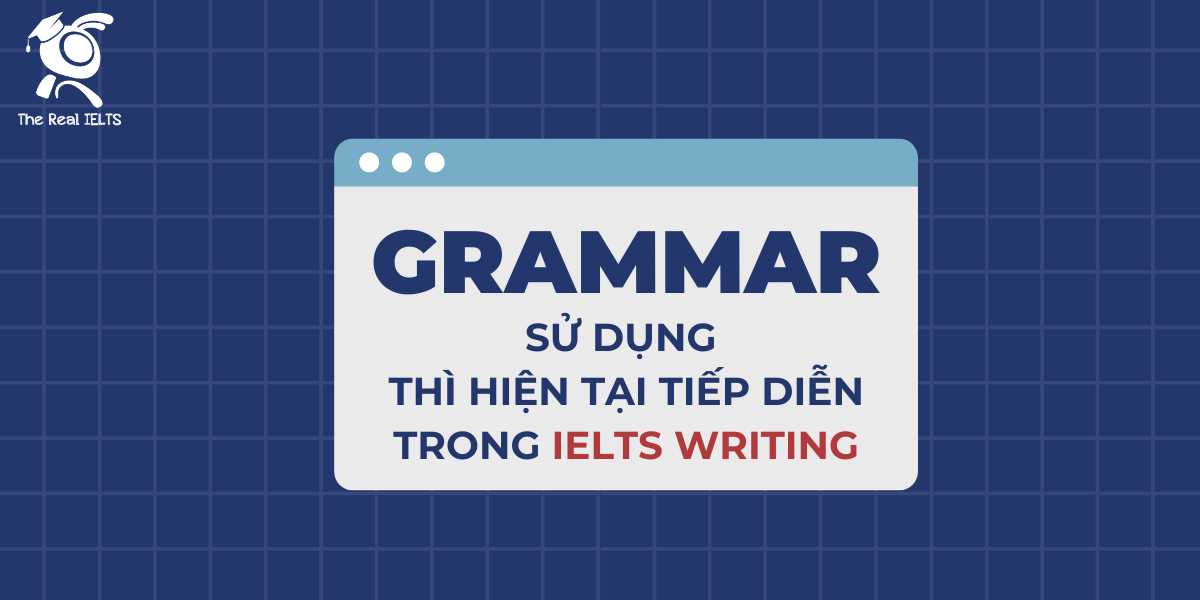“Hiện tại đơn” trong tiếng Anh được gọi là “simple present tense“. Đây là một thì trong ngữ pháp tiếng Anh được sử dụng để diễn đạt về hành động, sự kiện hoặc trạng thái hiện tại, tức là những điều xảy ra thường xuyên, đang xảy ra, hoặc đúng trong quá khứ, hiện tại và tương lai.
Ví dụ:
- I play football. (Tôi đang chơi bóng đá.)
- She reads books every night. (Cô ấy đọc sách mỗi đêm.)
- The sun rises in the east. (Mặt trời mọc ở phía đông.)
Trong các ví dụ trên, “play“, “reads“, và “rises” là các động từ ở dạng hiện tại đơn.
Hiện tại đơn các bạn sẽ được học tại khóa IELTS Kick Off nếu bạn đang cho rằng mình là người bị mất gốc tiếng Anh.
Muốn biết mình có ở trong tình trạng mất gốc hay không bạn phải liên hệ 092 298 5555 để đặt lịch thi thử hoặc có thể đăng ký trong form nhận ưu đãi ở bên cạnh bài viết này.
Động từ hiện tại đơn chia như thế nào?
Động từ hiện tại đơn trong tiếng Anh thường chia thành hai dạng chính: thứ nhất (số ít) và thứ ba (số nhiều). Dạng thứ nhất thường được sử dụng với chủ ngữ là “I,” “you,” “he,” “she,” “it,” và “they.” Dạng thứ ba thường được sử dụng với chủ ngữ là “he,” “she,” “it,” và “they.”
Dưới đây là cách chia động từ hiện tại đơn:
- Với động từ thường:
- Thứ nhất (số ít): I/You/We/They work (làm việc).
- Thứ ba (số nhiều): He/She/It works (làm việc).
- Với động từ kết thúc bằng -s, -x, -sh, -ch, -o:
- Thứ nhất (số ít): I/You/We/They go (đi), fix (sửa), wash (giặt), watch (xem), do (làm).
- Thứ ba (số nhiều): He/She/It goes (đi), fixes (sửa), washes (giặt), watches (xem), does (làm).
Lưu ý rằng có một số trường hợp động từ đặc biệt có thể có các thay đổi khác nhau khi chia ở dạng thứ ba, ví dụ như “have” (has), “be” (am/is/are), và “do” (does).
Động từ hiện tại đơn được dùng trong trường hợp nào?
Động từ hiện tại đơn trong tiếng Anh thường được sử dụng để diễn đạt về hành động hoặc sự kiện đang diễn ra tại thời điểm hiện tại, các sự thật khoa học, hoặc những thói quen, sở thích. Dưới đây là một số cách phổ biến sử dụng động từ hiện tại đơn:
- Sự thật khoa học hoặc sự kiện tồn tại:
- The Earth revolves around the Sun. (Trái đất xoay quanh Mặt Trời.)
- Water boils at 100 degrees Celsius. (Nước sôi ở 100 độ C.)
- Thói quen hoặc hành động lặp đi lặp lại:
- She exercises every morning. (Cô ấy tập thể dục mỗi sáng.)
- They usually go out for dinner on Fridays. (Họ thường đi ra ngoại ăn tối vào thứ Sáu.)
- Lời mời hoặc đề nghị:
- Do you want to join us for dinner? (Bạn có muốn tham gia ăn tối cùng chúng tôi không?)
- Let’s go to the movies. (Chúng ta hãy đi xem phim.)
- Diễn đạt về sở thích hoặc ý kiến cá nhân:
- I love reading books. (Tôi thích đọc sách.)
- He thinks that the movie is boring. (Anh ấy nghĩ rằng bộ phim đó là nhạt nhòa.)
Động từ hiện tại đơn là một thì quan trọng trong tiếng Anh và thường được sử dụng để truyền đạt thông tin về những sự kiện đang diễn ra trong thời điểm hiện tại hoặc những sự thật, sự kiện tồn tại.
Sự thật khoa học hoặc sự kiện tồn tại
- The Earth revolves around the sun.
- Water boils at 100 degrees Celsius.
- The human body consists of billions of cells.
- The sky appears blue during the day due to scattering of sunlight.
- The moon orbits the Earth.
- Sound travels faster through solids than through air.
- Plants perform photosynthesis to produce oxygen.
- The sun rises in the east and sets in the west.
- Gravity attracts objects towards the center of the Earth.
- The human heart pumps blood throughout the body.
Thói quen hoặc hành động lặp đi lặp lại
- She drinks coffee every morning.
- He checks his email multiple times a day.
- They play tennis every weekend.
- The bus arrives at 7 AM sharp.
- I brush my teeth before going to bed.
- He always wears a red tie to work.
- She eats lunch at noon every day.
- They take their dog for a walk in the evening.
- He listens to music while exercising.
- We watch a movie together every Friday night.
Lời mời hoặc đề nghị
- Would you like to join us for dinner tonight?
- Let’s go to the movies this weekend.
- How about grabbing a cup of coffee after work?
- Do you fancy going for a walk in the park?
- Why don’t we have lunch together tomorrow?
- Shall we have a meeting to discuss this further?
- Can I suggest meeting up for brunch on Sunday?
- How would you feel about coming to the party with me?
- Let’s catch up over drinks sometime.
- Would you be interested in attending the concert with me?
Diễn đạt về sở thích hoặc ý kiến cá nhân:
- I love watching movies on weekends.
- She enjoys listening to music while studying.
- He hates getting up early in the morning.
- They prefer eating out rather than cooking at home.
- We like playing soccer in the park.
- My sister adores reading novels before going to bed.
- Tom doesn’t mind going for a walk in the rain.
- Jane dislikes spicy food.
- My parents love traveling to exotic destinations.
- Sarah prefers spending her free time with friends rather than alone.
Chia động từ ở phần này có vẻ hơi lạ nhỉ? Chúng ta tạm thời rút ra một công thức đó là: khi hai động từ đứng cạnh nhau thì bắt buộc động từ đứng sau phải có các dạng khác như: Verb-ing, to Verb, … Trong phần ví dụ này chủ yếu là Verb-ing.
Động từ Hiện tại đơn hay đi với Trạng từ và cụm từ như thế nào?
Trạng từ nói chung
Trong thì hiện tại đơn của tiếng Anh, động từ thường đi kèm với adverb “always“, “usually“, “often“, “sometimes“, “rarely“, hoặc “never“. Các adverb này thường được sử dụng để diễn đạt tần suất hoặc thường xuyên của hành động. Ví dụ:
- She always arrives early.
- They usually go for a walk in the evening.
- I often drink coffee in the morning.
- Sometimes, he forgets his keys.
- She rarely eats fast food.
- He never misses his morning jog.
Trạng từ (Adverb)
Có thể sử dụng trạng từ để mô tả cách thức, thường là sau động từ.
Ví dụ:
- She sings beautifully.
- They work diligently.
- He drives carefully.
- We study attentively.
- They play tennis competitively.
- He cooks deliciously.
- She paints skillfully.
- They dance gracefully.
- He writes eloquently.
- She solves problems efficiently.
Trạng từ thời gian (Time adverb):
Trạng từ thời gian thường đặt ở cuối câu hoặc trước động từ.
Ví dụ:
- I usually study in the library after class.
- They frequently visit their grandparents on holidays.
- He always brushes his teeth before going to bed.
- She rarely eats fast food because it’s unhealthy.
- We occasionally meet up for coffee on weekends.
- The train arrives at the station every hour.
- They regularly exercise at the gym to stay fit.
- He hardly ever watches TV during the week.
- She never forgets to water the plants in the garden.
- They often travel abroad for business meetings.
Trạng từ tần số (Frequency adverb):
Có thể sử dụng trạng từ tần số để chỉ tần suất của hành động.
Ví dụ:
- She goes to the gym daily to exercise.
- They have a family dinner together weekly.
- I visit my grandparents monthly.
- He checks his email inbox hourly for updates.
- The garbage truck comes twice a week to collect trash.
- We have staff meetings biweekly to discuss progress.
- The company sends out newsletters quarterly to employees.
- The students have exams annually.
- They update their software regularly to fix bugs.
- The bakery bakes fresh bread daily.
Trạng từ nguyên nhân (Reason adverb):
Khi muốn diễn đạt lý do của hành động, trạng từ nguyên nhân thường được đặt ở cuối câu.
Ví dụ:
- She didn’t eat dinner last night, because she wasn’t hungry.
- They missed the bus due to heavy traffic.
- He couldn’t concentrate in class because he was feeling sick.
- Sarah is staying late at the office since she has a deadline to meet.
- We had to cancel the picnic because of the bad weather.
- Tom didn’t go to the party because he had to study for his exams.
- She didn’t attend the meeting due to a prior commitment.
- He didn’t finish the project because he lacked the necessary resources.
- They decided to take a break since they were feeling exhausted.
- Mary couldn’t go on the trip because she couldn’t get time off work.
Cụm từ hay đi với thì hiện tại đơn
Cụm từ bổ nghĩa (Modifier phrases):
Đôi khi, động từ có thể đi kèm với các cụm từ bổ nghĩa để mô tả rõ hơn hành động đó. Ví dụ: “She exercises vigorously every morning.”
- He studies diligently every night to prepare for the exam.
- They play basketball enthusiastically at the community center.
- She paints beautifully in her art class.
- We speak Spanish fluently after years of practice.
- The chef cooks skillfully in the restaurant kitchen.
- He swims competitively in the local swim meets.
- She dances gracefully on stage during the performance.
- They sing harmoniously in the choir every Sunday.
- The pianist plays passionately at the concert hall.
- The team practices rigorously to improve their skills.
Cụm từ mệnh lệnh (Imperative phrases):
Trong trường hợp câu mệnh lệnh, động từ thường đi kèm với các cụm từ mệnh lệnh như “please” hoặc “don’t”. Ví dụ: “Please be quiet.”
- Please turn off the lights before leaving the room.
- Don’t forget to bring your umbrella with you.
- Please be careful when crossing the street.
- Don’t touch the hot stove; it’s dangerous.
- Please close the door behind you.
- Don’t talk during the movie; it’s distracting.
- Please wait for your turn in line.
- Don’t eat with your mouth open; it’s impolite.
- Please listen to what I have to say.
- Don’t interrupt others while they’re speaking.
Bài tập thực hành thì hiện tại đơn:
- She __________ (go) to school every day.
- He usually __________ (eat) breakfast at 7 a.m.
- I __________ (watch) TV in the evening.
- They __________ (play) soccer on Saturdays.
- The sun __________ (rise) in the east.
- Birds __________ (sing) in the morning.
- Tom always __________ (brush) his teeth after meals.
- She __________ (work) as a teacher.
- My mother __________ (cook) dinner for us every night.
- We __________ (live) in this house for ten years.
- It __________ (rain) a lot in the summer.
- The cat __________ (sleep) on the sofa.
- He __________ (drink) coffee in the morning.
- Dogs __________ (bark) when someone knocks on the door.
- The train __________ (arrive) at 9 o’clock.
- She __________ (dance) beautifully.
- The children __________ (play) in the garden now.
- We __________ (speak) English at home.
- He usually __________ (take) a shower before bed.
- The Earth __________ (revolve) around the sun.
- I __________ (read) a book in the library.
- My father __________ (drive) to work every day.
- She __________ (teach) math at the university.
- The baby __________ (cry) when he’s hungry.
- They __________ (travel) to different countries every summer.
- The clock __________ (tick) loudly.
- She __________ (exercise) at the gym twice a week.
- We __________ (meet) our friends for dinner tonight.
- He always __________ (forget) his keys.
- The cat __________ (chase) mice in the garden.
- The sun __________ (shine) brightly in the sky.
- She __________ (call) her mother every day.
- They __________ (go) to the beach on weekends.
- We __________ (study) English grammar in class.
- My brother __________ (play) the guitar very well.
- The birds __________ (build) nests in the trees.
- He __________ (take) the bus to work every morning.
- She __________ (visit) her grandparents every Sunday.
- They __________ (run) a marathon next month.
- We __________ (buy) groceries every Saturday.
- The flowers __________ (bloom) in the spring.
- She __________ (write) a letter to her friend.
- He __________ (fix) his car on weekends.
- They __________ (watch) a movie tonight.
- We __________ (enjoy) hiking in the mountains.
- The cat __________ (purr) when it’s content.
- She __________ (work) hard to achieve her goals.
- They __________ (attend) the meeting every Monday.
- He __________ (listen) to music in his free time.
- The dog __________ (fetch) the ball in the yard.
- We __________ (clean) the house every weekend.
- She __________ (type) documents on her computer.
- He __________ (play) video games after school.
- They __________ (practice) soccer every afternoon.
- The sun __________ (set) in the west.
- She __________ (speak) French fluently.
- We __________ (invite) friends over for dinner tomorrow.
- He __________ (fix) breakfast for his family.
- They __________ (go) swimming in the lake.
- She __________ (read) the newspaper every morning.
- He __________ (drive) carefully on icy roads.
- They __________ (surf) the internet in their free time.
- The cat __________ (nap) in the sunshine.
- She __________ (practice) piano every day.
- We __________ (plant) flowers in the garden.
- He __________ (study) for exams every night.
- They __________ (take) photos on vacation.
- The clock __________ (strike) twelve.
- She __________ (give) speeches at conferences.
- We __________ (walk) to school every day.
- He __________ (check) emails regularly.
- They __________ (watch) TV shows on weekends.
- She __________ (fix) her hair before going out.
- He __________ (visit) his grandparents twice a month.
- We __________ (feed) the birds in the park.
- She __________ (swim) in the pool every evening.
- They __________ (listen) to the radio in the car.
- He __________ (play) basketball with his friends.
- The cat __________ (paw) at the door.
- She __________ (help) her parents with chores.
- We __________ (take) a walk in the park.
- He __________ (wash) the dishes after dinner.
- They __________ (bake) cookies on weekends.
- She __________ (study) English literature at university.
- We __________ (enjoy) picnics in the summer.
- He __________ (wait) for the bus at the stop.
- They __________ (work) on the project together.
- The dog __________ (bark) at strangers.
- She __________ (read) bedtime stories to her children.
- We __________ (water) the plants every day.
- He __________ (listen) to classical music in the evening.
- They __________ (drive) to the countryside on weekends.
- She __________ (take) yoga classes twice a week.
- We __________ (watch) the sunrise at the beach.
- He __________ (talk) to his friends on the phone.
- They __________ (play) board games on rainy days.
- She __________ (bike) to work every morning.
- We __________ (visit) museums when we travel.
- He __________ (meditate) for relaxation.
- They __________ (cook) dinner together on Sundays.
Đáp án
- She goes to school every day.
- He usually eats breakfast at 7 a.m.
- I watch TV in the evening.
- They play soccer on Saturdays.
- The sun rises in the east.
- Birds sing in the morning.
- Tom always brushes his teeth after meals.
- She works as a teacher.
- My mother cooks dinner for us every night.
- We live in this house for ten years.
- It rains a lot in the summer.
- The cat sleeps on the sofa.
- He drinks coffee in the morning.
- Dogs bark when someone knocks on the door.
- The train arrives at 9 o’clock.
- She dances beautifully.
- The children play in the garden now.
- We speak English at home.
- He usually takes a shower before bed.
- The Earth revolves around the sun.
- I read a book in the library.
- My father drives to work every day.
- She teaches math at the university.
- The baby cries when he’s hungry.
- They travel to different countries every summer.
- The clock ticks loudly.
- She exercises at the gym twice a week.
- We meet our friends for dinner tonight.
- He always forgets his keys.
- The cat chases mice in the garden.
- The sun shines brightly in the sky.
- She calls her mother every day.
- They go to the beach on weekends.
- We study English grammar in class.
- My brother plays the guitar very well.
- The birds build nests in the trees.
- He takes the bus to work every morning.
- She visits her grandparents every Sunday.
- They run a marathon next month.
- We buy groceries every Saturday.
- The flowers bloom in the spring.
- She writes a letter to her friend.
- He fixes his car on weekends.
- They watch a movie tonight.
- We enjoy hiking in the mountains.
- The cat purrs when it’s content.
- She works hard to achieve her goals.
- They attend the meeting every Monday.
- He listens to music in his free time.
- The dog fetches the ball in the yard.
- We clean the house every weekend.
- She types documents on her computer.
- He plays video games after school.
- They practice soccer every afternoon.
- The sun sets in the west.
- She speaks French fluently.
- We invite friends over for dinner tomorrow.
- He fixes breakfast for his family.
- They go swimming in the lake.
- She reads the newspaper every morning.
- He drives carefully on icy roads.
- They surf the internet in their free time.
- The cat naps in the sunshine.
- She practices piano every day.
- We plant flowers in the garden.
- He studies for exams every night.
- They take photos on vacation.
- The clock strikes twelve.
- She gives speeches at conferences.
- We walk to school every day.
- He checks emails regularly.
- They watch TV shows on weekends.
- She fixes her hair before going out.
- He visits his grandparents twice a month.
- We feed the birds in the park.
- She swims in the pool every evening.
- They listen to the radio in the car.
- He plays basketball with his friends.
- The cat paws at the door.
- She helps her parents with chores.
- We take a walk in the park.
- He washes the dishes after dinner.
- They bake cookies on weekends.
- She studies English literature at university.
- We enjoy picnics in the summer.
- He waits for the bus at the stop.
- They work on the project together.
- The dog barks at strangers.
- She reads bedtime stories to her children.
- We water the plants every day.
- He listens to classical music in the evening.
- They drive to the countryside on weekends.
- She takes yoga classes twice a week.
- We watch the sunrise at the beach.
- He talks to his friends on the phone.
- They play board games on rainy days.
- She bikes to work every morning.
- We visit museums when we travel.
- He meditates for relaxation.
- They cook dinner together on Sundays.















